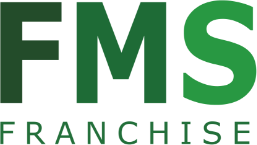
We are often asked about franchising vs licensing and what is the difference between the two. To some people, the explanation involves splitting hairs but there are some differences that are important to understand. This blog discusses the differences between the two.
In licensing the licensor allows the licensee to use its business name and/or marks for a fee.
Licensing allows someone to use your name and trademark. The licensor is paid a fee of some kind, generally, it is an upfront fee plus an ongoing royalty payment such as a percentage of sales or a fee per product sold. One example of this is a software license. When you purchase a license of Microsoft software, for example, you aren’t purchasing a product from Microsoft. You are entering into a license agreement that allows you to use the product under certain specified terms and conditions. These terms and conditions are outlined in the fine print of the license agreement.
Licensing a business allows you to benefit from the marketing and brand awareness of the licensor. This can be a more cost-effective solution to grow your business, initially.
Licensing is often used for the sale of products. An example might be a toy manufacturer licensing the rights to use Disney character names and images. Licensing can be used as an alternative business expansion model. It can also be used as well to help co-brand other existing similar types of businesses.
The greatest limitation of licensing is the inability of the licensor to be able to control the operating procedures of the business operation.
In franchising, the franchisee purchases the franchise and is allowed to use the franchisor's business name and business system for the payment of a fee upfront and/or ongoing.
Franchising also allows someone to use the business name and trademark. The franchisor is paid a fee of some kind, generally, it is an upfront fee plus an ongoing royalty payment such as a percentage of sales or a fee per product sold. Franchising, however, can be a more cost-effective solution to expand, initially. It allows operational control for consistency and provides an exit strategy for the business.
In a franchising arrangement, the individual purchasing the franchisee benefits from the franchisor’s branding, advertising, and marketing. This higher level of brand awareness is helpful to the franchisee in establishing the business and getting off the ground.
Franchising can be used for business expansion, to grow a business model in a wide array of industries including service, food, lodging, retail, professional services, medical, and many others.
It can be used to help manufacturing and distribution businesses grow to the next level. This helps them expand by converting other companies into franchises. This can also be used to help co-brand other existing similar types of businesses.
Like licensing arrangements franchises have the ability to enforce operational requirements and consistencies but, only the franchisee is able to manage employees.
One other difference is the fact that franchising is highly regulated by the SEC. Licensing and Franchising can seem alike, but franchising requires some additional work to obtain approval from the SEC. Franchises must also be monitored on an ongoing basis to ensure compliance with franchise law.
While it is true that there is more regulation in franchising, this need not be seen as cumbersome. It is in place to protect both the franchisor and franchisee and ensure the best success for both parties.
All of the above factors should be considered in franchising versus licensing decisions. A franchise consulting firm like Franchise Marketing Systems can help you sort through all of the options and arrive at the solution that is best for you.

FMS is a team of expert franchise consulting professionals based in Canada that provides solutions for franchise development, franchise consultation, and expansion of businesses globally.